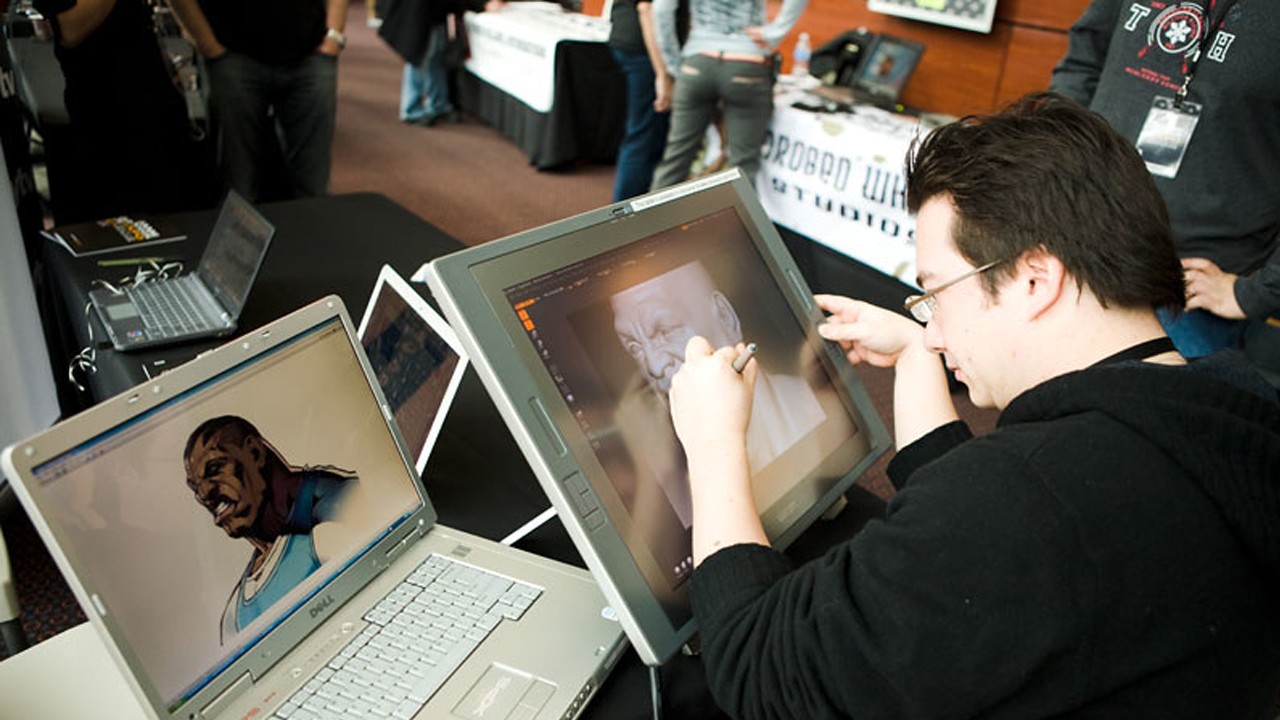Embarking on the journey of game development can unlock a world of creativity and technical skill. But where do you begin, especially if you’re aiming to learn in English? Whether you’re dreaming of crafting immersive worlds or engaging gameplay, mastering game development in a language that may not be your first presents unique challenges and opportunities. This guide aims to streamline your learning process, ensuring you can navigate the complexities of game development with confidence and clarity. Let’s dive into transforming your vision into reality.
Choosing the Right Game Engine

Embarking on the journey of game development can be both exhilarating and daunting. A pivotal decision that shapes this path is selecting the appropriate game engine. It’s the foundation upon which your ideas and creativity will be built, thus understanding your options and aligning them with your project needs is essential. Game engines vary greatly in terms of features, licensing costs, platform support, and learning curves. For beginners, engines like Unity and Unreal Engine are often recommended due to their extensive documentation, supportive communities, and versatility in game types they can create. However, it’s crucial to consider what type of game you intend to develop, your programming skills, and your project’s scope before making a choice.
Unity, for example, is widely praised for its user-friendly interface and the ability to deploy games across a vast array of platforms. Its scripting is done in C#, making it a great choice for those who are either familiar with the language or are willing to learn it. Unreal Engine, on the other hand, offers powerful graphical capabilities and is preferred for projects requiring high-quality visual fidelity. It uses C++ and a visual scripting system called Blueprints, which can be appealing for developers looking to create complex games without deep coding. Other engines like Godot, Construct, and GameMaker Studio cater to specific needs and skill levels, offering unique strengths such as ease of use for beginners or specialized tools for 2D game development.
Factors to Consider When Choosing a Game Engine
- Project scope and game type
- Programming languages and technical skills
- Graphics and performance requirements
- Platform compatibility and deployment goals
- Community support and learning resources
When delving further into the process of selecting a game engine, it becomes clear that beyond the surface-level attributes, factors such as the engine’s licensing model, asset store availability, and the frequency of updates play a significant role in your development experience. A robust community not only facilitates easier problem-solving but also provides a wealth of shared knowledge and resources, which can be invaluable for a beginner. Understanding these deeper aspects can significantly impact your long-term success and enjoyment in game development.
Mastering Programming Languages
At the core of game development lies the essential skill of understanding and utilizing programming languages effectively. The journey to becoming a proficient game developer is paved with the mastery of languages such as C++, C#, or Python. These languages serve as the foundation for most game engines and tools, making them indispensable tools in a developer’s arsenal. It starts with grasping the basic syntax and semantics of the chosen language, followed by applying these concepts through constant practice and project creation.
Choosing the right programming language can significantly impact your development process and final product. For instance, C++ is renowned for its high performance and control over system resources, making it ideal for complex game engines. Conversely, C# is often preferred for Unity-based projects due to its simplicity and ease of use, especially for beginners. Python, while not as common in game development, is celebrated for its rapid prototyping capabilities. Engaging in community forums, online tutorials, and open-source projects can accelerate the learning curve and provide practical experience.
Choosing Your First Programming Language
Embarking on game development requires a strategic selection of your first programming language. This decision should consider your game’s requirements, the game engine you plan to use, and your personal learning preferences. While the learning process may seem daunting at first, the availability of extensive resources and community support makes it more accessible than ever. Practicing by creating small projects and gradually increasing complexity can lead to mastery over time.
- Understand the basics of programming logic and structures.
- Choose a language that aligns with your game development goals (e.g., C++ for Unreal Engine).
- Engage in practical exercises and build small projects to apply your knowledge.
- Participate in forums and online communities for support and feedback.
- Consistently challenge yourself with more complex projects as you progress.
Remember, mastering programming languages is a journey of continuous learning and practice. By dedicating time to understand the fundamentals and actively applying your knowledge, you can develop the skills necessary to bring your game development visions to life. Starting with simpler languages and projects can provide a solid foundation, gradually paving the way to tackling more complex game development challenges.
Understanding Game Design Principles

Embarking on the journey of game development requires a foundational understanding of game design principles. These principles are not merely guidelines but the cornerstone of creating engaging and immersive gaming experiences. At its core, game design involves the conceptualization and execution of a game’s mechanics, dynamics, and aesthetics. Mechanics refer to the rules and systems governing the game, dynamics are the interactions between the game’s systems and the players, and aesthetics are about the sensory experiences a game provides. Understanding these components is crucial for anyone looking to dive into the world of game development.
One of the first steps in grasping game design principles is to study and analyze existing games. This involves more than just playing games for enjoyment. It requires a critical eye to understand how a game’s mechanics are implemented, how they affect the dynamics of the game, and how this all ties back to the overall player experience. Through this analysis, aspiring game developers can begin to understand the balance between challenge and reward, the importance of a coherent narrative, and how the aesthetics of a game contribute to its feel and immersion.
Additionally, understanding game design principles encompasses learning about the importance of player feedback. Feedback can come in many forms, such as visual signals, audio cues, or changes in the game’s environment, and it is essential for guiding players and providing them with a sense of accomplishment. This feedback loop is vital for keeping players engaged and making the game experience rewarding. By mastering these principles, developers can create games that are not only fun to play but also resonate with players on a deeper level.
- Study the basic components of game design: mechanics, dynamics, and aesthetics.
- Analyze existing games to understand how these components work together.
- Learn how to create a balance between challenge and reward in your game.
- Understand the role of narrative in player engagement and immersion.
- Master the use of player feedback to refine gameplay and enhance the user experience.
Delving into game design principles is a journey that goes beyond mere theory. It is an iterative process of creation, testing, and refinement. Aspiring game developers should embrace this process, continually seeking out feedback and learning from both successes and failures. By doing so, they can hone their craft and contribute to the rich and diverse world of gaming. Remember, the most successful games are those that provide memorable experiences, challenge players in meaningful ways, and, above all, are a testament to the creativity and passion of their developers.
Building Your Game Development Portfolio
Creating a compelling game development portfolio is a critical step for anyone looking to enter the game industry, whether as an indie developer or as part of a larger studio. Your portfolio is not just a collection of your work; it’s a testament to your skills, creativity, and passion for game development. It’s essential to include a variety of projects that showcase your range — from small scale indie games to larger, more complex projects if possible. This not only demonstrates your versatility but also your ability to work on different aspects of game development, such as coding, design, and storytelling.
The key to a standout portfolio is not just the quantity of the work but the quality and diversity of your projects. It’s beneficial to highlight projects that involve modern game engines like Unity or Unreal Engine, as these are industry standards. Moreover, including projects that show your problem-solving skills, such as how you overcame a particular design challenge or implemented an innovative gameplay mechanic, can significantly enhance your portfolio’s appeal. Remember, your portfolio is your first impression to potential employers or collaborators, so make it memorable.
Another vital aspect of building your game development portfolio is to ensure it’s easily accessible. A well-organized, visually appealing website where each project is accompanied by a brief description, the role you played, and the technologies used, can make a significant difference. This not only makes it easier for viewers to understand and appreciate your work but also demonstrates your professionalism and attention to detail.
| Project Title | Role | Technologies Used |
|---|---|---|
| Zombie Rush | Lead Developer | Unity, C# |
| Space Odyssey | Game Designer | Unreal Engine, Blueprint |
| Castle Quest | Environment Artist | Blender, Unity |
| Alien Invasion | AI Programmer | Unreal Engine, C++ |
| Mystic Forest | Sound Designer | Audacity, FMOD |
While building your game development portfolio, it’s also essential to reflect on your personal journey and growth within each project. Providing context and insights into your creative and technical process offers a deeper understanding of your capabilities and how you approach game development. This narrative can be incredibly compelling to potential employers or collaborators, as it not only showcases your technical skills but also your critical thinking and adaptability. A well-crafted portfolio is a powerful tool in the game development industry, opening doors and paving the way for future opportunities.
Engaging with the Developer Community
One of the most valuable steps a beginner can take in the journey of learning game development is to engage actively with the developer community. This engagement provides a wealth of knowledge and resources that are otherwise hard to come by. Through forums, social media groups, and online platforms, beginners can connect with experienced developers, gaining insights into the challenges and solutions found within game development. Furthermore, it’s an excellent way to stay updated on the latest trends, tools, and technologies that are shaping the industry.
Participating in game jams and hackathons is another crucial way to immerse oneself in the community. These events offer a hands-on experience in game development within a competitive yet supportive environment. They are also perfect opportunities for networking, collaboration, and receiving feedback on your work. The knowledge and skills acquired from these experiences are invaluable and often lead to significant personal and professional growth.
Lastly, don’t underestimate the power of contribution. Sharing your own projects, ideas, and solutions can not only help others but also establish you as a knowledgeable and reliable member of the community. It opens up avenues for mentorship, partnerships, and even job opportunities.
- Forums like Stack Overflow and Reddit
- Game development conferences and meetups
- Online courses and tutorials
- Open source projects and game jams
- Social media groups and hashtags related to game development
Engaging with the developer community enriches your learning journey by providing support, inspiration, and a platform for sharing knowledge. It encourages continuous learning and adapting, which are crucial for success in the ever-evolving field of game development. By making connections and contributing to discussions, you not only enhance your own skills but also contribute to the growth and development of the community as a whole.
In conclusion, integrating oneself within the game development community is a multifaceted strategy that accelerates learning and opens doors to numerous opportunities. It is a step that complements traditional learning paths and provides a richer, more connected experience in the world of game development. Start engaging today, and watch as your skills, network, and passion for game development grow exponentially.

Is a game developer and writer with over seven years of experience in the gaming industry. Specializing in game design, development trends, and emerging technologies. He has worked on indie game projects and larger development teams, sharing his insights to help aspiring developers navigate the evolving world of game creation. Ethan’s articles focus on practical tips, game mechanics, and tools to inspire creativity in the gaming community.






